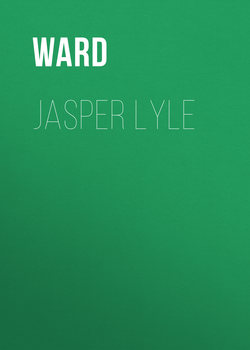Читать книгу Jasper Lyle - Ward - Страница 6
Chapter Six.
The Kafir Spy
ОглавлениеWe left Frankfort and Ormsby with their cavalcade of wagons, horses, and attendants, pursuing their way to the north-east.
I have no intention of giving you a detailed account of this part of their expedition, since they are not presented to the reader in the character of mere sportsmen—indeed such narratives belong to more experienced hands than mine, albeit, ere their able works appeared, I had collected a few anecdotes, which would now present no novelty.
May, the bushman guide, still headed the cavalcade, a unique advance-guard, closely followed by two or three of the queerest-looking mongrels possible, of which his favourite was a species of water-spaniel.
A fine bloodhound kept close to Ormsby’s horse’s heels, never condescending to join May and his scratch-pack, and scorning all offers from the bushman’s cuisine; the only symptom of toleration of inferior caste shown by the aristocratic dog was a passive endurance of the infant Ellen’s caresses, when she crawled through the grass to Major Frankfort’s tent, into which the yellow face of the little imp no sooner peered, than she was snatched up by her father, and carried back to Fitje with a gentle rebuke. “The sir was kind,” May said, “and he would not have him imposed upon.”
In many ways this stunted creature of the wilderness displayed a refinement of feeling not always met with among worldly beings, jealous of infringing on the conventionalism of society—people who meet you with “Unmeaning speech—exaggerated smile,” and measure their civilities by the length of your purse, or your position in fashionable life.
And are these less treacherous than the savage? Verily, I believe that, in spirit, they are just as deceitful.
But let us leave them, and return to our party.
There they go up the hill—May in advance with Spry and Punch, and Floss. The sun is blazing out, and our bushman winds his bright-coloured douk round his head, and tramps round the angle of a jutting rock, staff in hand. Before he does so, he looks back to see how the cavalcade gets on, lights his pipe, and alternately smoking, and singing, and whistling to his dogs, he proceeds leisurely along. At last, even he, of the active limbs and bronzed skin, begins to pant—his shadow shows like a frog beneath his feet; tired as he is, he laughs at it, spreads out his hands, whistles an opera air he has picked up from some military band, and capers in the glowing light, till wearied, he sits down on a block of granite, beneath a stunted bush, unslings his three-string fiddle from his neck, and plays with great skill, considering the means at hand, the rattling, saucy air of “Rory O’More.”
And he was at it right merrily, when the first wagon, with its oxen smoking and breathing heavily, reached the spot he had chosen as the outspan, where a more solid breakfast was to be prepared than the one that had been hastily snatched at dawn.
The country, although only about nine miles distant from the picturesque locality on which our party had rested during the night, was now of a totally different character; great plains, only relieved here and there by low bush, or huge masses of stone, stretched out for miles before the traveller’s eye, and the noble natural parks through which they had journeyed the preceding day were hidden from their view by the undulations they had traversed. In the distance, between the arid earth and the glowing sky, at the edge of the horizon, stalked a company of ostriches, apparently the only tenants of this great solitude.
There was something very grand, and even affecting, in the contemplation of such a scene; at least, so thought Frankfort, whose heart expanded under the impression produced by Nature in her state of lonely majesty. Here she was not lovely, but sublime; the infinity of space, the shadowless land, the unclouded sky—too dazzling for mortal eye to dwell upon—the awful silence, all seemed more fully to betoken the eternal presence of God, than in green places where shelter was at hand, and where, therefore, the solitude was not so apparent, so vast. The very cries of wild beasts give life to the jungle—but here the human voice broke abruptly on the stillness of the plains, as if it had no business there, and Frankfort was thoroughly disenchanted of his sublime mood in contemplating the almost awful expanse, as May scraped his fiddle ere he laid it down to attend to Ormsby’s inquiry as to “where his cigars had been packed.”
It must be owned, that Ormsby had no taste for the sublime or the romantic; indeed, there are not many men in the world who would have found food for contemplation in the desert scene before them; and as for our young sub, I am forced to admit, that by the time he had smoked three cigars, he began to wonder what he should do with himself when breakfast was over.
Frankfort had stocked the wagon with many more luxuries on Ormsby’s account, than he would have thought of providing for himself; and the meal, spread out on the shady side of the wagon, was by no means despicable. Excellent tea, devilled biscuits, cold tongue and honey, an offering from Vanbloem, and added to these were savoury slices of porcupines, a viand from which, in its raw state, Ormsby had turned away in disgust, but to which, when cooked, he addressed himself with a keen relish.
